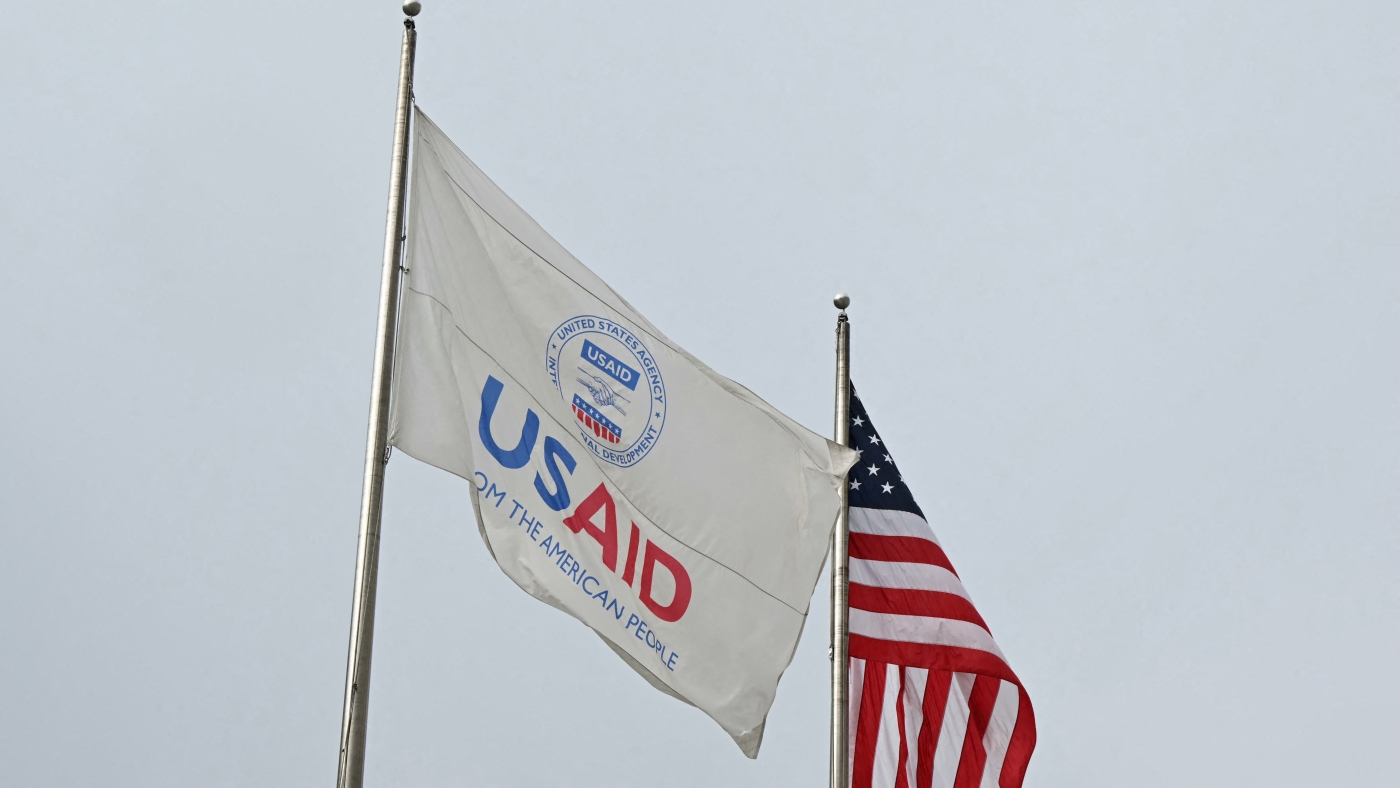
President Trump greets Israel's Prime Minister Benjamin Netanyahu as he arrives at the North Portico of the White House on Tuesday. Jim Watson/AFP via Getty Images hide caption
toggle caption
Jim Watson/AFP via Getty Images
Israeli leader Benjamin Netanyahu is the first foreign leader to meet with President Trump since he was sworn in last month. Netanyahu arrived at the White House and he'll hold a press conference with Trump Tuesday evening.
Netanyahu's visit comes amid negotiations over Phase 2 of a ceasefire deal between Israel and Hamas. Phase 1 of the deal focused on the release of Israeli hostages and Palestinian prisoners.
"We're focused on making sure Phase 1 completes exactly as it should complete, that all the hostages that are a part of that deal come home, including bodies," Steve Witkoff, the president's envoy to the Middle East, told reporters on Tuesday.
Phase 2 would end the war with Hamas and return all Israeli hostages from captivity in Gaza. Witkoff said he's hopeful all parties "get to the right place."
Witkoff also said he was meeting with Qatar's Prime Minister Sheikh Mohammed bin Abdulrahman bin Jassim Al Thani in Florida on Thursday to go over the negotiations. Qatar has served a key role in brokering the deal.
But Trump's envoy said Phase 3 of the ceasefire deal — reconstruction of Gaza — would get complicated because it's "physically impossible" to rebuild Gaza in five years. A 10-15 year timeline would be more likely, he said, because of the damage to Gaza during the war.
Trump stands by proposal to move Palestinians
Trump has said he wants Jordan and Egypt to take in Palestinians who live in Gaza, though those parties have rejected the idea.
"I think they should get a good, fresh, beautiful piece of land, and we get some people to put up the money to build it and make it nice and make it habitable and enjoyable," Trump said
He said the U.S. didn't intent to pay to move Palestinians to neighboring countries, and he rejected the idea that moving Palestinians would amount to forcible displacement.
"They have no alternative right now. I mean, they're there because they have no alternative. What do they have? It is a big pile of rubble right now. I mean, have you seen the pictures of it? Have you been there? It's terrible to live. Who can live like that? And very dangerous," Trump said of Gaza, where about 2 million people live in one of the most densely populated places in the world.
Asked later if Palestinians would have the right to return to Gaza after reconstruction, Trump said, "It would be my hope that we could do something really nice, really good, where they wouldn't want to return. Why would they want to return? That place has been hell."
Trump has also cast doubt on how durable the ceasefire deal is.
"I have no guarantees that the peace is going to hold," he told reporters in the Oval Office on Monday.
New executive orders on the region
On Tuesday, Trump signed two executive orders related to the Middle East. One puts "maximum" pressure on Iran. Trump said he was "torn" about signing it.
"I'm signing this and I'm unhappy to do it but I have not so much choice because we have to be strong and firm," Trump said, and added that he hopes he doesn't have to use it.
"To me, it's very simple. Iran cannot have a nuclear weapon," Trump said. He said the U.S. has the right to block the sale of Iranian oil to other countries.
The other order pulled the U.S. out of the United Nations Human Rights Council and cut off aid to the United Nations Relief Works Agency, which is the main group providing aid to Palestinians.
The UNHRC has been criticized by both Democrats and Republicans for being biased against Israel.
That order also considers pulling the U.S. out of UNESCO, the United Nations Educational, Scientific and Cultural Organization.

 2 hours ago
3
2 hours ago
3













